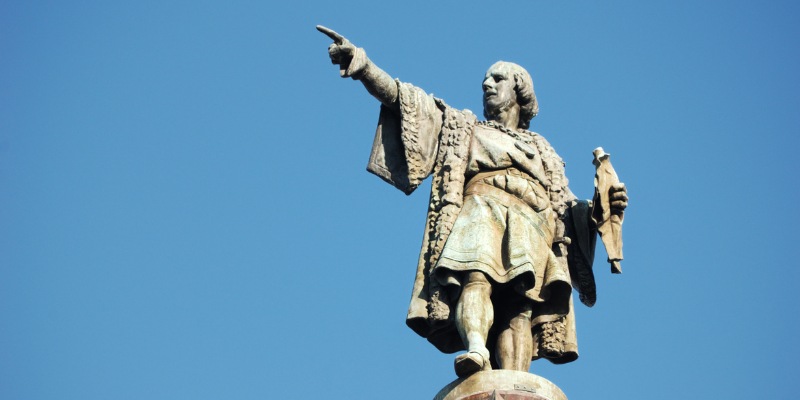Is Columbus Day A Federal Holiday
Columbus Day is recognized as a federal holiday in the United States. Celebrated on the second Monday of October, it commemorates the landing of Christopher Columbus in the Americas in 1492. Certain federal services and operations may be closed or altered on this day as a federal holiday. However, observance can vary by state and locality.
In the vast tapestry of American holidays, Columbus Day has always held a unique place, often marked by parades, school lessons, and, for some, a day off work. But what is the real significance behind this day, and more importantly, is Columbus Day a federal holiday?
Columbus Day: A Glimpse into History
Before we delve into the modern implications and observances, it’s crucial to understand where it all began. Christopher Columbus, an Italian explorer commissioned by the Spanish monarchy, embarked on several voyages in the late 15th century. His journeys led to the Europeans discovering the Americas, previously unknown.



The idea of commemorating this discovery began in the 18th century, with festivities and parades organized by Italian and Catholic communities in the U.S. The holiday’s establishment, however, was a 20th-century endeavor, marking Columbus’ historic journey and the cultural impact it had on shaping the New World.
Why should Columbus Day be celebrated?
Columbus Day was formally recognized as a federal holiday in the United States in 1937. Being designated a federal holiday means that it receives acknowledgment at the national level.
Consequently, federal employees usually get the day off, and various government offices and services remain closed. However, this recognition does not mandate universal observance. Private businesses, for instance, are not required to close, nor are they obligated to give their employees a day off.
How is Columbus Day celebrated in the United States?
Here’s where it gets interesting. While Columbus Day has federal recognition, its observance varies significantly across states. Some states, like New York and Illinois, recognize and celebrate Columbus Day with parades and events.
On the other hand, states like South Dakota have adopted a different approach, celebrating “Native American Day” instead. Similarly, Hawaii observes “Discoverers’ Day” to commemorate the Polynesian discoverers of Hawaii. The most notable shift has been the adoption of “Indigenous Peoples’ Day” by states such as New Mexico and Maine, which aim to honor Native American history and culture.
Modern times have brought a wave of re-evaluation and reflection on historical figures and events. Columbus Day is no exception. Critics argue that while Columbus’ voyages were historically significant, they also marked the beginning of violent colonization, forced labor, and the decimation of indigenous populations.
This critical perspective has fueled movements pushing for alternative celebrations, emphasizing the rich tapestry of indigenous cultures that existed long before Columbus set foot on American soil. This dialogue has led to the increasing adoption of “Indigenous Peoples’ Day” across various states and cities.
Beyond historical and cultural implications, Columbus Day, being a federal holiday has specific effects on everyday American life. Many federal services, such as the postal service, halt. Simultaneously, retailers seize the opportunity, offering “Columbus Day Sales,” which have become a staple, especially for autumn wear and early holiday shopping.
Columbus Day Beyond U.S. Shores
It’s fascinating that the U.S. isn’t alone in commemorating this event. Several Latin American countries celebrate “Día de la Raza” (Day of the Race), emphasizing the mixed indigenous and European heritage of the Americas. While the names and nuances differ, the core remains the acknowledgment of that fateful day in 1492 when two worlds collided.
Are schools closed on Colombus Day?
Whether schools close on Columbus Day varies by location and individual school district policy in the United States.
Federal Level: Columbus Day is a federal holiday. However, federal holidays don’t directly dictate school closures. Public schools are governed by state and local regulations, not federal ones.
State Level: Some states observe Columbus Day and may recommend schools to be closed, while others do not recognize the holiday and typically remain open. Some states, like California, South Dakota, and Oregon, do not recognize Columbus Day as a public holiday, so schools are often open.
Local Level: Even in states where Columbus Day is a recognized holiday, individual school districts may decide to remain open or close. For example, while New York State observes Columbus Day, New York City public schools often remain open.
Additionally, some areas that have renamed the holiday (e.g., “Indigenous Peoples’ Day”) may still close schools in observance.
Private Schools: Private schools can set calendars, so they might make different decisions than public schools in the same area.
Columbus Day in Contemporary Context
Columbus Day’s deep-rooted history, varied observances, and evolving narratives encapsulate the ongoing American journey of self-reflection and growth. Whether it’s a day off for you, a day of celebration, or a day of protest, it undeniably offers an opportunity to engage in meaningful conversations about our shared history.
As we navigate these discussions, we must approach them with an open mind, ready to understand, learn, and evolve. After all, the essence of history lies not just in remembering dates and events but in drawing lessons that shape a better tomorrow.
Is Columbus Day the same day every year?
No, Columbus Day is not on the same calendar date every year. It is observed on the second Monday of October in the United States. So, while it always falls in October, the specific date can vary from October 8th to October 14th. The holiday was moved to this schedule in 1971 under the Uniform Monday Holiday Act, which aimed to provide more three-day weekends for the nation’s workers by moving the celebration of certain holidays to Mondays. Before 1971, Columbus Day was celebrated on October 12th, the actual date Columbus landed in the New World in 1492.
Is Columbus Day a Postal Holiday?
Yes, Columbus Day is a postal holiday. The United States Postal Service (USPS) observes Columbus Day, so post offices are closed, and regular mail delivery services are suspended for the day. However, some package delivery services might still operate.
Are Banks Open on Columbus Day?
On Columbus Day, many banks in the United States are closed in observance of the federal holiday. However, not all banks close, and the decision can vary by branch and location. It’s always a good idea to check with your specific bank or branch to confirm their holiday schedule.

